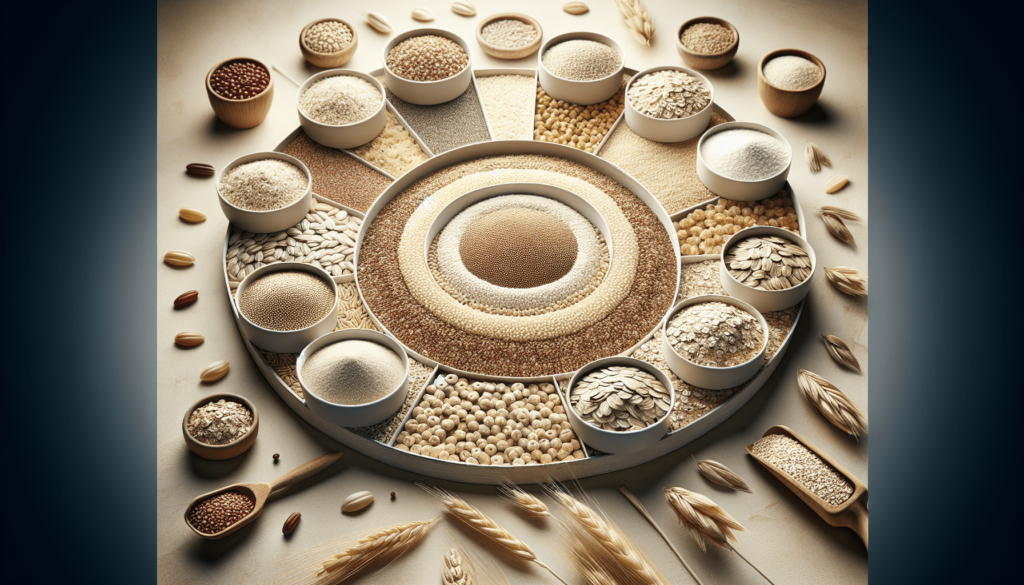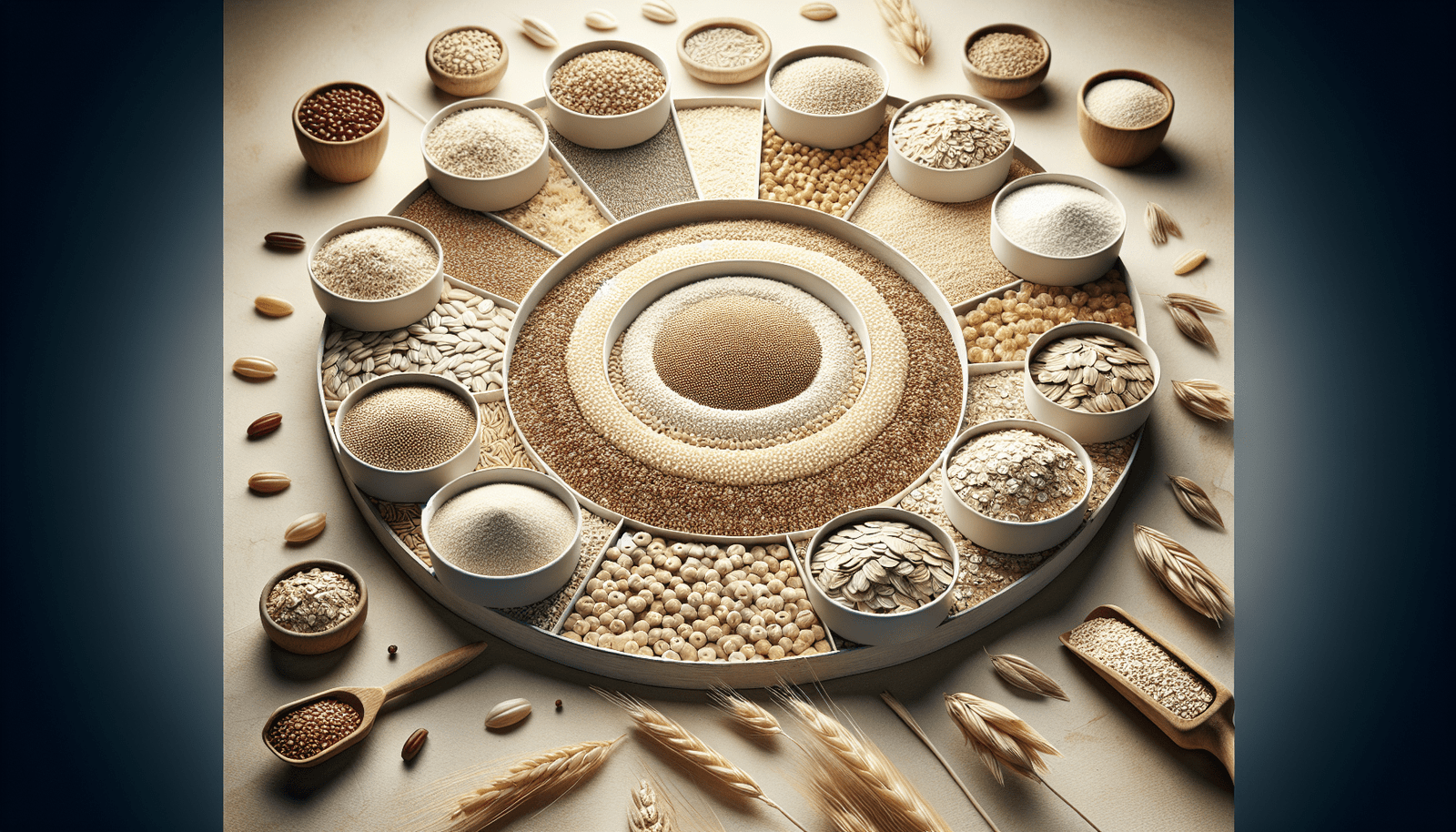Welcome to a fascinating exploration of how whole grains impact your gut motility and digestion. Embracing whole grains in your diet can lead to improved digestive health, thanks to their fiber content and ability to promote healthy gut bacteria. By understanding the role of whole grains in enhancing gut motility and digestion, you can make informed dietary choices that support your overall well-being. Let’s delve into the science behind the beneficial effects of whole grains on your digestive system and learn how to incorporate them into your daily meals for optimal health. How do whole grains affect gut motility and digestion?

This image is property of pixabay.com.
What are Whole Grains?
You probably already know that whole grains are good for you, but do you know why? Whole grains are grains that still have their bran, germ, and endosperm intact, which means they contain all the parts of the grain and all the nutrients that come with it. This makes them a rich source of fiber, vitamins, and minerals that are essential for good health.
The Importance of Gut Health
The health of your gut is crucial to your overall well-being. Your gut is home to trillions of bacteria that play a key role in digestion, immune function, and even your mood. A healthy gut means better digestion, improved immunity, and reduced risk of chronic diseases.
The Role of Gut Motility in Digestion
Gut motility refers to the movement of food through your digestive system. When your gut is functioning properly, food moves through your digestive tract at a steady pace, allowing for efficient absorption of nutrients and elimination of waste. Whole grains can have a significant impact on gut motility due to their high fiber content.
The Fiber Factor
Fiber is a type of carbohydrate that the body can’t digest. Instead, it passes through the digestive system largely unchanged, adding bulk to your stool and aiding in the movement of food through the intestines. Whole grains are a great source of fiber, which can help regulate gut motility and prevent constipation.
Types of Fiber in Whole Grains
There are two main types of fiber found in whole grains: soluble fiber and insoluble fiber. Soluble fiber dissolves in water and forms a gel-like substance in the gut, while insoluble fiber does not dissolve and helps to add bulk to the stool. Both types of fiber are important for gut health and can play a role in regulating gut motility.

This image is property of pixabay.com.
Whole Grains and Digestion
When it comes to digestion, whole grains have a lot to offer. Not only do they provide essential nutrients that support overall health, but they also have a number of digestive benefits that can help keep your gut happy and healthy.
Slow and Steady Digestion
Whole grains are complex carbohydrates that take longer to digest compared to refined grains. This slow digestion rate means that whole grains provide a steady release of energy and can help keep you feeling full for longer. This can be especially beneficial for those looking to maintain a healthy weight or stabilize blood sugar levels.
Balancing Blood Sugar
Whole grains have a lower glycemic index compared to refined grains, which means they cause a slower and more gradual increase in blood sugar levels. This can help prevent spikes and crashes in blood sugar, which can be beneficial for individuals with diabetes or those looking to manage their weight.
Feeding Your Gut Microbiome
The beneficial bacteria in your gut thrive on fiber, and whole grains are an excellent source of this essential nutrient. By consuming whole grains regularly, you can help nourish your gut microbiome and promote a healthy balance of bacteria in your digestive tract. This can lead to better digestion, improved immunity, and overall better gut health.
Increasing Nutrient Absorption
Whole grains are rich in vitamins and minerals that are essential for good health, such as B vitamins, iron, and magnesium. The fiber in whole grains can help improve nutrient absorption by slowing down the rate at which food moves through the digestive system. This can ensure that your body has enough time to absorb all the essential nutrients from your food.

This image is property of pixabay.com.
How to Incorporate Whole Grains Into Your Diet
Now that you know how beneficial whole grains can be for your gut health and digestion, you may be wondering how to incorporate more of them into your diet. Luckily, there are plenty of delicious and nutritious ways to enjoy whole grains on a daily basis.
Whole Grain Options
There are many different types of whole grains to choose from, including:
- Whole wheat
- Oats
- Brown rice
- Quinoa
- Barley
- Millet
- Buckwheat
- Farro
Tips for Adding Whole Grains to Your Meals
Here are some simple tips for incorporating more whole grains into your diet:
- Start your day with a bowl of oatmeal topped with fresh fruit and nuts.
- Swap out white bread and pasta for whole grain varieties.
- Add cooked quinoa or brown rice to salads for an extra dose of fiber and nutrients.
- Snack on air-popped popcorn or whole grain crackers instead of processed snacks.
- Experiment with different whole grains in recipes, such as using farro in soups or making a pilaf with barley.
Reading Labels
When shopping for whole grain products, it’s important to read labels carefully. Look for products that list a whole grain as the first ingredient and aim to choose items with at least 3 grams of fiber per serving. Be wary of products that claim to be “multigrain” or “wheat” without specifying that they are made with whole grains.

Conclusion
Incorporating whole grains into your diet can have a positive impact on your gut health and digestion. By providing essential nutrients, supporting gut motility, and feeding your gut microbiome, whole grains offer a wide range of benefits that can contribute to overall well-being. So go ahead and add more whole grains to your meals for a happy and healthy gut!


